Kombucha and Kefir and Kvass, Oh My!
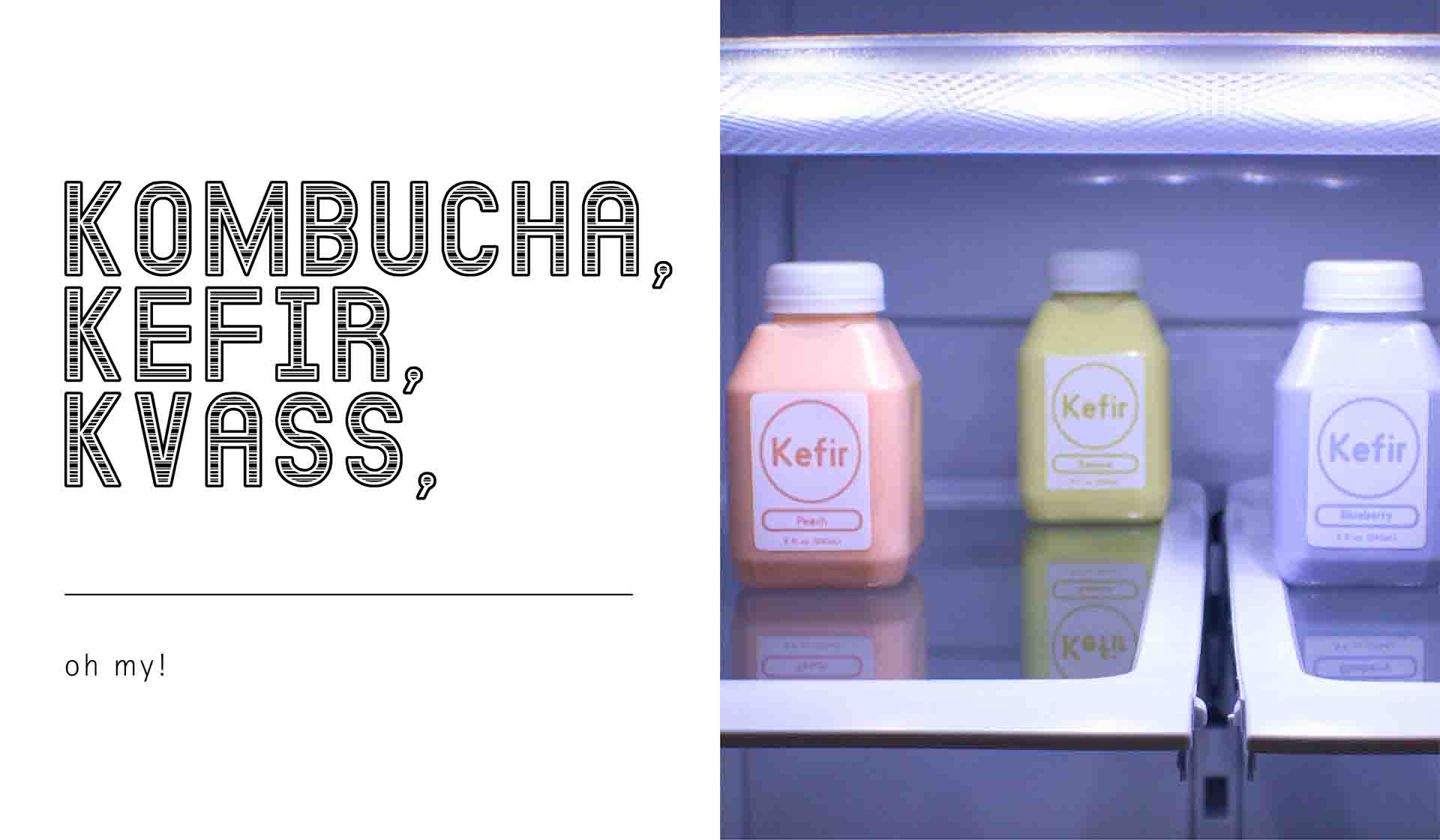
Probiotic drinks are increasing in popularity due to their powerful effect on one’s health, especially the gut area. Recent research indicates an unhealthy colon can create many other serious health problems. If the colon is sick, many other systems in the human body can be effected. The immune system can become weakened, mental functions can be compromised, weight control may become difficult, and hormone imbalances can cause a wide range of problems.
Luckily, there are now more options to support a healthy gut in easy to prepare probiotic drinks. Many contain the right kind of bacteria and enzymes to keep the belly and the other areas of the body healthy and happy.
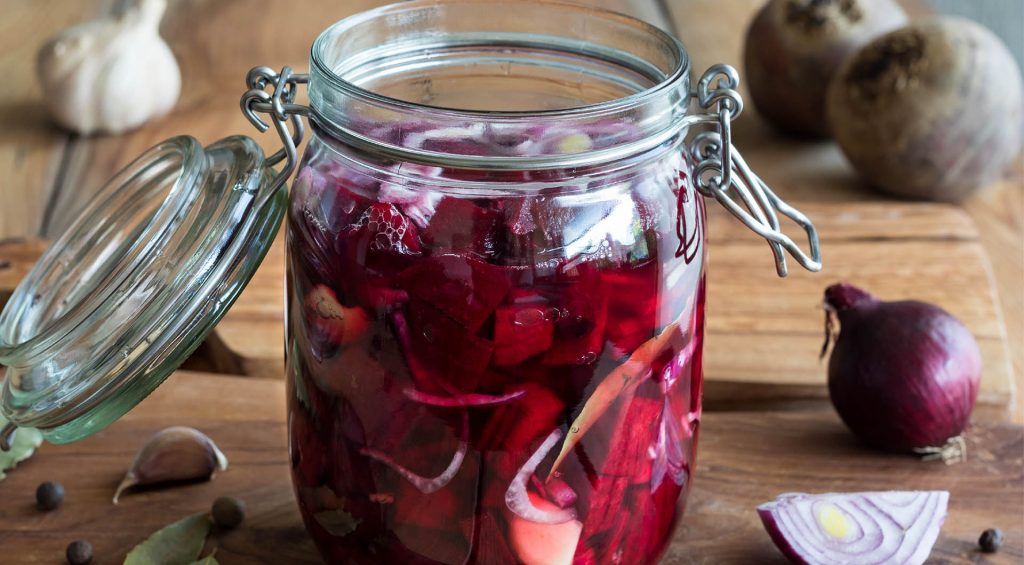
Probiotic Drinks
Some of the most popular probiotic drinks include Kombucha, Kefir, and Kvass. Each fermented drink provides an assortment of enzymes, probiotics, and other health-boosting agents to the body. While these beverages are sold in many stores, they are also easy to prepare at home.
- Kombucha – A tangy, slightly sweet drink (sometimes with fizz), is known for its powerful antioxidant properties. It is also rich in Vitamin C. Kombucha is known for protecting cells against inflammation and other damage, boosting the body’s immune system, and detoxifying the liver.
- Kefir – Kefir is a fermented milk drink which uses a blend of yeasts and bacteria. This drink has a tangy taste and is filled with helpful probiotics. Kefir is often used in smoothie blends but can be enjoyed on its own.
- Kvass – This fermented beverage is a tradition in Slavic and Baltic areas. It is typically made from naturally fermented rye bread and is often flavored with fresh fruits and herbs. Kvass is known as a rich source for Vitamin B1, Vitamin B6, magnesium, amino acids, and phosphorus and is often used to improve digestion.
The Best of Probiotics
Many probiotic drinks are used to promote a healthier, stronger immune system. Probiotic drinks, even the ones made at home, are a popular choice for treating many different types of health issues. These issues include:
- High blood pressure
- High cholesterol
- Poor memory or learning ability
- Depressed mood
- Irritable bowel syndrome
- Digestive issues
- Urinary tract infection
- Allergies
- Eczema
- Weight loss
Probiotic drinks, especially kombucha, have also been shown to cleanse and detoxify the body of dangerous free radicals and other toxins.
Making Your Own Probiotic Drinks
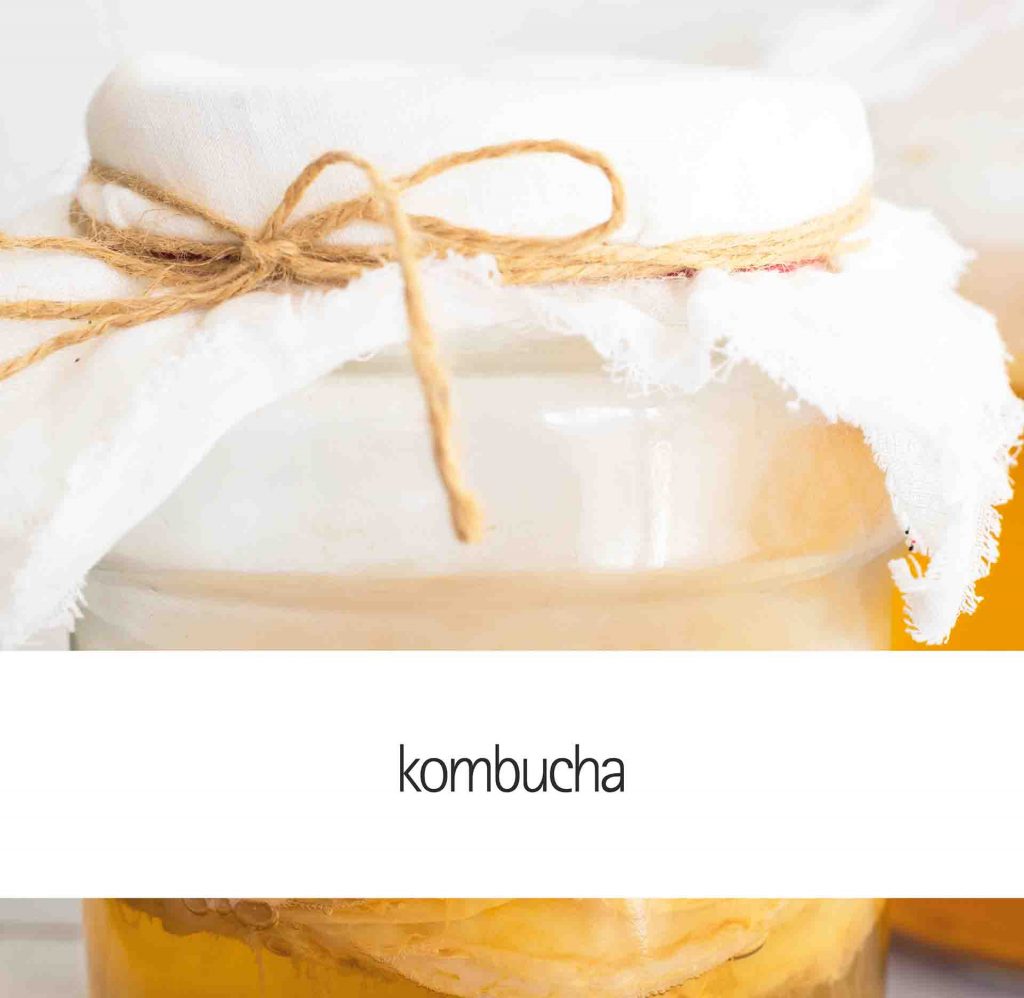
Kombucha
Kombucha is a relatively easy drink to make on your own. It requires a few basic supplies and ingredients including:
- Teabags or loose tea leaves
- Water
- Distilled white vinegar
- Cane sugar
- SCOBY (dehydrated culture)
- Glass jar
- Coffee filter
- Airtight lid
If you are making your first batch of kombucha, you’ll need to prepare the tea (2 tablespoons of loose tea leaves or 8 small teabags) in one gallon of water. Water should be heated to dissolve sugar but doesn’t need to be boiling. Tea should steep for 15-20 minutes and allowed to cool to room temperature.
The SCOBY, a colony of bacteria and yeasts, can be bought as part of a kombucha starter kit or can be used from a previous batch of kombucha. The SCOBY should be put at the top of the tea jar (it will float). The glass jar should then be capped with a coffee filter and an airtight lid. The tea will need to sit for 7-10 days to properly ferment. After fermentation, fruit, herbs, or spices can be added to the drink. The kombucha will need to sit for an additional 3 days for the second fermentation process to complete. The drink can then be bottled or enjoyed immediately.
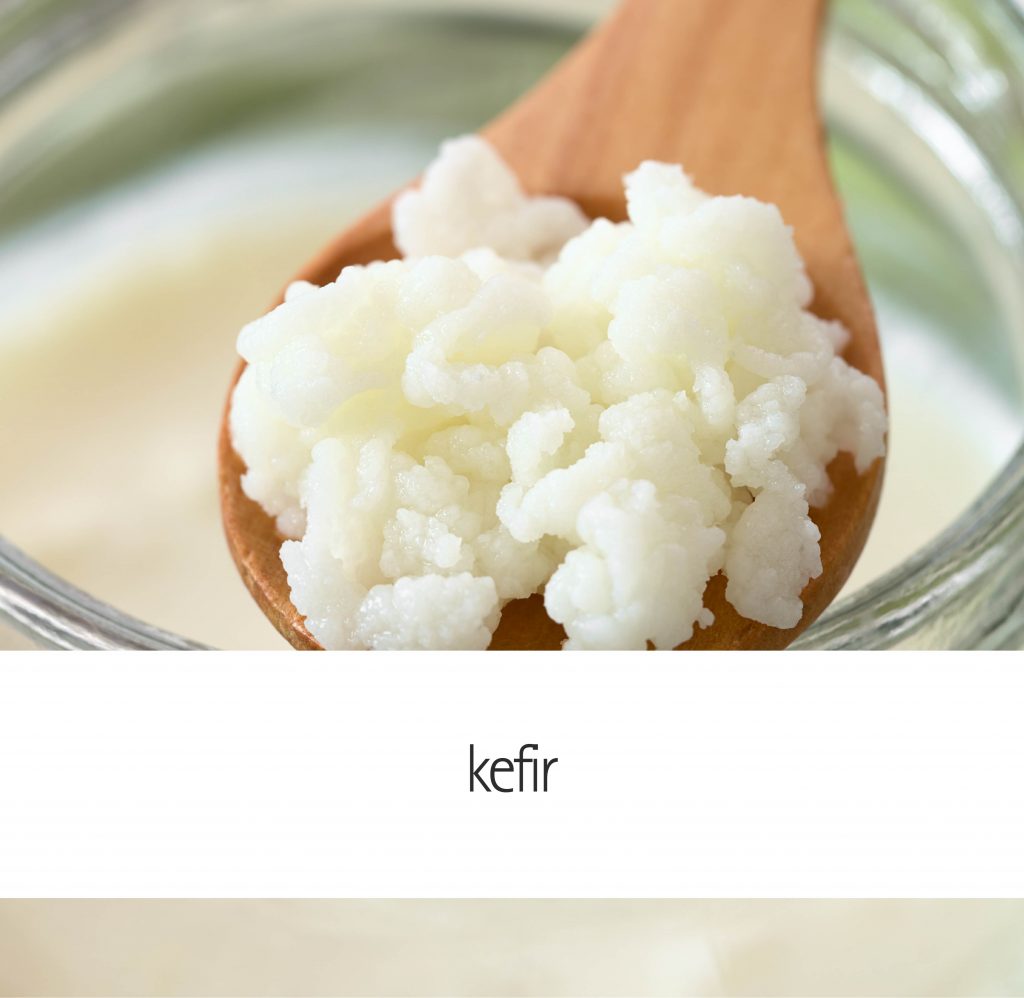
Kefir
Milk kefir is a popular probiotics drink which doesn’t take much time to prepare at home. Basic materials for making kefir includes:
- A glass jar
- Coffee Filter
- Canning jar ring
- Plastic mesh strainer
- 1-2 teaspoons active kefir grains
- Milk (cow or goat)
You’ll need to add the active kefir grains to 4 cups of fresh milk in a clean glass jar. The jar needs to be covered by a coffee filter and secured with a canning lid ring. The milk mixture should be placed in a warm place (68-85 degrees Fahrenheit) and allowed to culture for at least 24 hours. The milk will thicken and change its texture. Once this occurs, the culture is complete. The kefir grains should be separated from the finished product, using the mesh strainer. The used grains can be added to a new batch of milk to begin a new culture. The finished kefir product can be stored in the refrigerator.
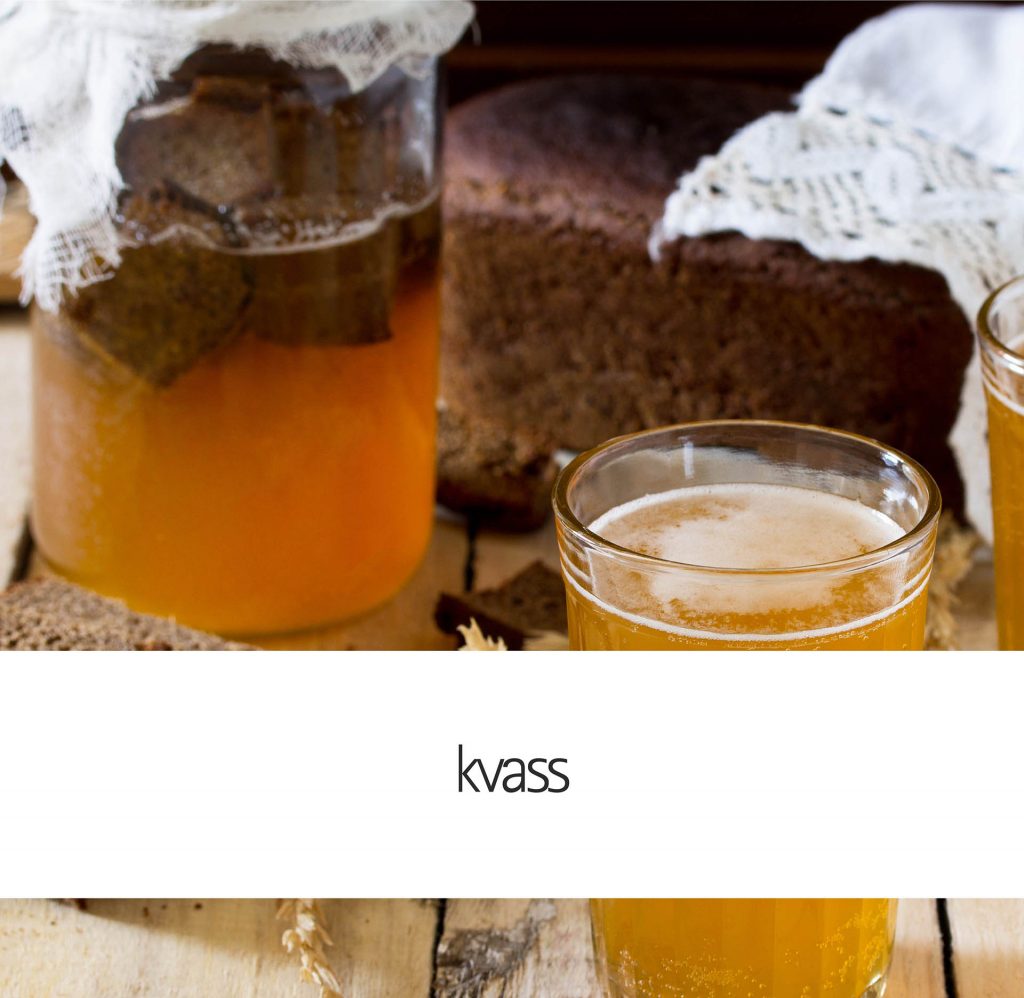
Kvass
Kvass is a popular probiotic drink, often compared to a sweet, non-alcoholic beer. The longer it ferments, the more alcohol content the drink will gain. To make kvass at home, you’ll need:
- Water
- 9 slices rye bread
- Raisins
- 4 cups of sugar
- 1.5 tablespoons active dry yeast
- 3 plastic soda bottles (large)
To make the Kvass, you’ll need to fill a stock pot with 2.5 gallons of water and bring to a boil. Toast the rye bread twice on the highest setting in your toaster. Once the water has begun to boil, remove from heat. Toss in a handful of raisins and the toasted bread. Cover the pot and let it sit for 8 hours or overnight.
On the second day, remove the bread and throw it away. In a separate bowl, combine 4 cups of sugar and yeast. Add the kvass mixture to the pot and cover. Allow the mixture to set for another 6 hours, stirring several times. After the six hours, remove the raisins. The kvass can then be poured into bottles using a strainer. The kvass bottles should be loosely covered with the lid and placed in the refrigerator overnight. Once the beverage has chilled completely, the closures can be tightened.
Whether you try one probiotic recipe or all three drinks, making your concoctions at home is made easier with glass bottles and jars from BottleStore.com. We offer a variety of different bottle and jar sizes, perfect for making and storing your drinks.
